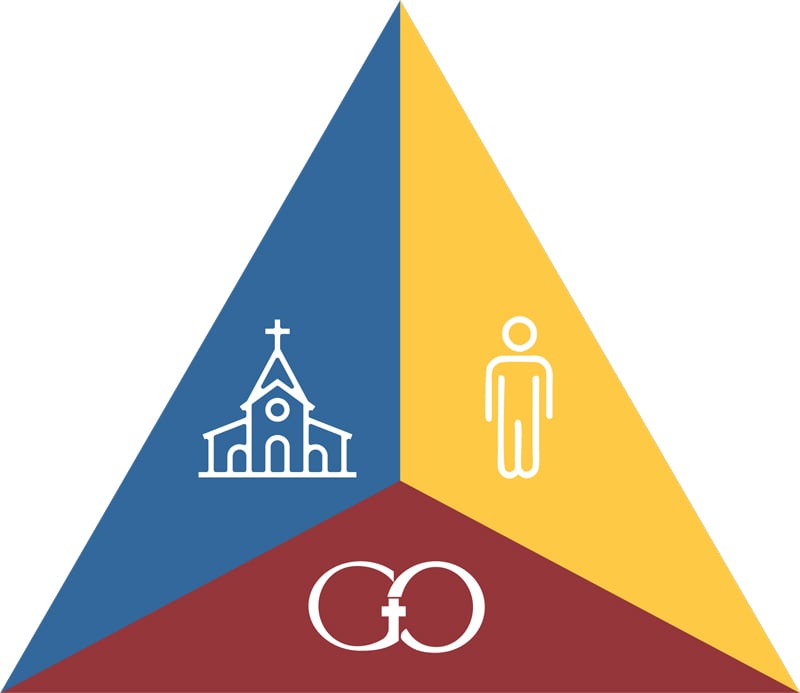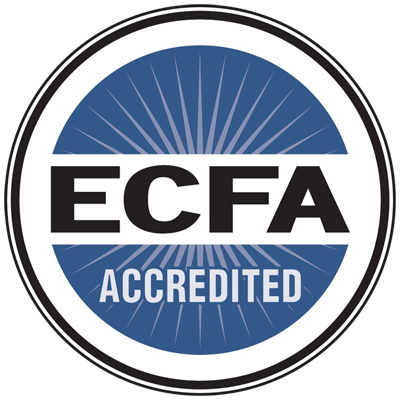Missions Coaching: From Conversation to Commissioning
What are some of the things the Lord used to awaken your heart for missions?
October 30, 2024
Missions Coaching: A Broad Definition
The words mobilize and mobilization were not part of my daily vocabulary until I started working at a missions organization. While we still use these words on a casual level, our desire is to begin more of a coaching relationship to determine readiness for the field. Missions organizations use their own buzzwords that may be used in a variety of ways, representing a variety of stages on one’s missionary journey. But if I were to narrow down how we use it in the Global Outreach International Mobilization Department, the most common phrase you would hear is, “mobilizing missionaries to the field.”
What does that mean exactly? Well, that too is a phrase we use that comes with a wide variety of stages in and of itself. And not just stages that are applicable to Global Outreach, but stages of mobilizing or coaching that have begun long before an initial conversation with us.
Rooted in Discipleship
A quick perusal of our website would alert you to another common buzz question of the missions and ministry world: “Is God calling you?” The average person, not familiar with Christian or missions lingo, might respond, “Is God calling me to what?” However, for the individual who has been discipled not only in the Christian faith but also more specifically in missions, they would know exactly what we are asking.
So, what are we asking exactly?
The longer version of that question would be something like, “Is God calling you to serve Him overseas as a long-term missionary?” The only person who says “Yes!” to this question is someone intently seeking the Lord to follow the steps He has laid out for them to walk.
Answering this call to serve as a missionary overseas, for most people, didn’t happen overnight. One of the questions I love to ask during an initial inquiry coaching call is, “What are some of the things the Lord used to awaken your heart for missions?” Many of those replies start with discipleship. They either grew up in a home that greatly valued God’s heart for missions or attended a church that intentionally taught them about missions, supported missionaries, and offered a variety of short-term trips. Often, it was one of those short-term mission trips where God awakened an overwhelming desire to go back and serve long-term on the mission field.

God is awaking people’s hearts to the need to prepare to serve overseas. Where might God be leading you?
For some, missions discipleship came later in their life through courses such as Perspectives or mission-specific classes at a church or conference. These folks often grew up serving and loving the Lord through the local body, but somehow, they missed the golden thread in Scripture revealing God’s heart for the Nations. It’s classes and courses like Perspectives that give depth, breadth, and purpose as it reveals the intentionality it takes to consider living overseas long-term. And not only living overseas, but also allowing time for the Spirit of God to mature their faith in the reality that God is truly calling them to such a serious endeavor. Missions discipleship done well and patiently over time can be a sustainable factor in the life of a missionary.
Candid Conversations
One of our primary focuses is sending missionaries overseas long-term. We also want to be a part of an individual’s missions discipleship journey. GOI offers a variety of opportunities for young adults looking to expand their experience of serving and living overseas.

The initial interview call, typically video, is the first step in helping people determine if the missionary candidates are ready to serve overseas.
I just poured a cup of morning coffee and opened a designated Zoom hour with a young woman from Hawaii. Her desire was specific to serving through an internship in Taiwan. Her degree, as well as language skills useful for that location, gave her the qualifications much needed for the area the Lord had laid on her heart to serve. I began seeking out missionaries in Taiwan as I was eager to connect her with GOI missionaries already established in Taiwan. This is one more connection to help her consider the Lord’s leading in her next steps after graduation.
Waiting for the Lord to unveil the next steps is another vital stage in one’s missions discipleship or coaching journey to the field. Another precious young woman I spoke with expressed how her longing was to do anything God desired. She served in Uganda through a summer internship, as well as several short-term mission trips. Each opportunity simply whetted her appetite to continue the work the Lord had already started in her heart for cross-cultural missions. She is still waiting for the Lord to unfold His desired destination for her. We left our conversation with prayer and the assignment to continue gathering information and insight.
Ready or Not? That is the Question
So, when is someone ready to start the more strategic process of being mobilized to the field? Every organization must have a process, right? Is it safe to say that without a process, the people perish? As a former homeschool mom, my answer would be yes! Processes help keep everyone accountable, and they keep us from unintentionally showing partiality. I am a planner. Walk by faith is fine with me if my work calendar is up to date on my computer and synced with my kitchen calendar. The kitchen calendar is for my viewing, as well as my husband and two teen daughters. And I do not need to mention how many times my engineer husband has asked me to just use my phone instead of the old-school paper-and-pencil calendar method. All I know is that the phrase, “You can’t teach an old dog new tricks,” usually takes care of things and works both ways.
Back to missions procedures and processes. What are we looking for in a long-term missionary candidate? Here are some examples of questions we ask in our initial interviews:
- How has the candidate prepared themselves for long-term missions service?
- Has the candidate been discipled formally or informally?
- What qualifications for service does the candidate offer?
- Has the candidate ever participated on a missions trip, whether short-term, internship, or even vision trips through Global Outreach International, a church or other agency?
- What is the candidate’s calling, plan, or ministry objective?
- Is the candidate planning to serve overseas or cross-culturally in the U.S.?
- Are the candidates currently working with another organization?
- What will they need from GOI?
- Do the candidates have strategic next steps laid out to meet their desired timing to move overseas?
- Have they researched the necessary obligations for such a move?
- Do they have families that need care?
- Have they prayerfully considered their needs in this calling?
- Is a sending church and community investing in them financially and spiritually?
- Are they spiritually, mentally, and emotionally mature enough to take this step in their lives?
Although this may seem like a long list of questions, many are answered almost immediately when a missionary candidate begins to tell us about themselves and the calling the Lord has placed upon their lives.
If there are still lingering questions needed to clarify one’s call to missions, the answer is not a No, but rather, How can we help? Often, when a missionary is not ready for an application, the knowledge they gain from our time together of what is still lacking helps narrow the focus of their need. They know more specifically the things that need further prayer and preparation.
To Vet or Not to Vet? That is Another Question
Vetting is often a scary word and alludes to the process of elimination. However, for a missionary candidate, it communicates that we care. I have been teaching my teenage daughter to drive. Scary? Yes. But I know if I do not make sure she knows what she is doing on the road with me in the car, there is no way she will be ready to drive entirely on her own. This should be a universally understood reality when it comes to teenage driving. Parents have the responsibility, based on their experience, to equip their children for such milestones. Our vetting team at GOI have either been missionaries in a cross-cultural context or raised in a missionary family. The staff is very aware of the challenges often present in missionary life.

Vetting missionaries for the readiness to serve overseas is like vetting your teen’s readiness to drive a vehicle.
As an organization of fellow believers who care deeply for our brothers and sisters in Christ, we have a great responsibility to be honest and transparent with our missionary candidates. In turn, we expect that same honesty and transparency from them. If there is an absence of humility and a teachable spirit in the process on the front-end, there will undoubtedly be an absence of it on the field.
Readiness and fit do not necessarily mean that every detail is in place, but it does mean that all the elements in our application process are complete. These elements include filling out an application, providing references, taking some assessments, interviews, and engaging in a church partnership.
The Role of the Church

The church, the missionary, and the missions organization each have an important role in sending missionaries and supporting them.
What is a church partnership or what does it look like? Well, it is an integral part of onboarding as a missionary with GOI. When we think back to our initial thoughts on discipleship, our hope is that the candidate’s church had a hand in the discipleship journey and will remain committed to traveling with them.
Clearly this is an ideal scenario and is not always the case, but unless there is a church present in the life of a missionary-to-be, we cannot proceed with their onboarding.
To assure you that we have a dog in the fight, I will offer you a snippet of our Church Partnership Statement we give to candidates that describes the triangular union of the church as sender, the missionary as sent, and the missions organization as server:
“We believe that the Church is God’s mission strategy to make His name known among the nations. Global Outreach International (GOI) exists to support the church’s mission to make disciples of all nations. We often speak of the 'Church Partnership Triangle’ to describe the relationship between the Church, the Missionary, and Global Outreach. In this model, the Church is the sender, the missionary is being sent, and Global Outreach International serves to facilitate this process. Each point of the triangle is essential, has a unique role, and is interdependent with the others. We believe we not only need one another, but that together we can more effectively reflect the heart of God as a community that cares for and serves one another, as together we respond to God’s call to mission.”

The church, the missionary, and the missions organization work together to send and support the missionary in their work.
It stands to reason, if the church is missing in the process, so is a piece of the triangle. Luke 5:7 says, “They signaled their partners…to come help them.” When the missionary, their church, and an organization such as Global Outreach come together, the foundation for a missionary to stand on is solid.
The missionary needs the church, and the church needs the missionary. What about the millions of people sitting in churches across the nation who will never step foot on international soil? How will they get any opportunity to participate in the great commission calling to take the gospel to all the nations? They will do it through prayer and financial support of their missionaries in the church. They will do it by going on short-term trips and providing encouragement to their missionaries on the field. They will write encouraging letters, send needed items, give of their time, resources, and energy to the missional cause. They will be the Church, the Bride of Christ, serving, sending, and partnering with organizations that will care well for their missionary, all the while being a constant resource for how to care even better!
What is MOT?
Once the required application and process element boxes have been checked, there comes a time in the mobilization onboarding process when we get to put a little more than a face on Zoom to a name. This is my favorite part of the onboarding process. Once a final application interview has been completed, candidates who have been approved by our mobilization team are given an invitation to MOT. This stands for Missionary Orientation Training. As of now, we offer three Missionary Orientation Trainings a year, routinely during the months of February, June, and October.
Candidates arrive at our office in Tupelo, Mississippi, for a weeklong, in-person training. There is something so very magical (and yes, spiritual) about this week! Not only are candidates oriented to how our organization functions, but also, they are also given a close-up view of how we work, fellowship, and do life together as an organization. Why is this important? It shows that we care. If we can love and care for each other well, chances are we will love and care well for our missionaries.
Everyone has quality time in one-on-one sessions. We actively serve one another, both the staff and the candidates. Affirming words are at their height and we have had some snug moments during our worship and devotion times. There are many gifts and chocolates that get handed out.
Feeling the love is almost certain during these training weeks, unless of course there are those who do not claim to live by any of the love languages offered to us by the well-known book, The Five Love Languages (Chapman, 1992). If you know the five languages, the examples above are real. However, for those looking to learn how to get the most out of the organization and function properly under its guidance, MOT gives them just that. And by no means is this week only for our candidates, but also for our Missionary Care Department, our Human Resources Department, our Missionary Operations Department, our Finance Department, and for weaving together all the necessary steps to our final stage of the vetting process.
Once our candidates have been given an invitation to MOT, candidates will receive online training modules. Some are required to be completed prior to MOT and others are designed to be completed after MOT.
From Candidate to Launch
When the candidates value this process, then each step can be taken with patience and perseverance. The steps along the way are intentionally designed to prepare both new and seasoned missionaries to see that they are valued, cared for, and worth investing in with time, energy, and finances because we know we are joining what God is doing in their personal calling.
We have recognized that when expectations are communicated at the very front end of the process, the experience can be much more digestible. That is one of the goals of the GOI Mobilization Department, to provide initial care through clear communication.
As we have gleaned, the mobilization journey for a candidate begins with discipleship. For those of us who are seasoned servants of the Lord, our hearts ought to constantly be burdened with the responsibility to pass the torch to the next generation of missionary candidates. We can and must do it! It may mean we start with the very basics, but for those whose hearts are being kindled by the zeal of the Holy Spirit, those much-needed elementary truths will quickly turn to a desire to be an active participant in missions. Yet we must ask ourselves, are we being intentional? Because unless we are intentional, we will miss opportunities all around us.
God is the Great Mobilizer
The topic, or the very thought of missions mobilization itself, falls short if not grounded in the blessed truth of Luke 10:2 that states, “And He said to them, “The harvest is plentiful, but the laborers are few. Therefore, pray earnestly to the Lord of the harvest to send out laborers into His harvest.” God made the sad and ever-present declaration that the workers are few. Then He told us to pray. We must pray or our plans and processes are of no real value. We must pray for more workers. We must pray for God, the Great Mobilizer, to mobilize His people to reach the unreached and to bring the great news of salvation to those who’ve yet to hear it. Wesley Duewel, head of OMS International states that, “We can reach our world if we will. The greatest lack today is not people or funds. The greatest need is prayer.”
Our desire is to prayerfully mobilize. We want to call upon the Lord to do what only He can ultimately do. We want candidates who love Jesus so much that they are willing to do whatever it takes to persevere through processes and with patience, make plans that will honor the call the Lord has placed upon their lives. We want to be spiritually strategic, working and living intentionally to see His kingdom come and His will be done on earth as it is in heaven. We want to worship Him while we labor to have all the nations join us
Resources
Are interested in pursuing more info?
Check out GOI’s new GO SEEK weekend or one of the conferences below where GOI will be present.
Global Missions Health Conference
November 7-9, 2024
Lousiville, KY
GMHC 2024 - November 7-9, 2024
Creative Expressions Missions Conference Booth Set-Up
Moody Bible Institute
February 4-7, 2025
Chicago, IL
Missions Conference | Moody Bible Institute
Azmera Stateside Summit Networking Circle
June 6-8, 2025
Pheonix, AZ
References
Chapman, Gary. (2024). The Five Love Languages: The Secret to Love that Lasts. Northfield Publishing.
Perspectives USA. Course Overview - Perspectives USA



